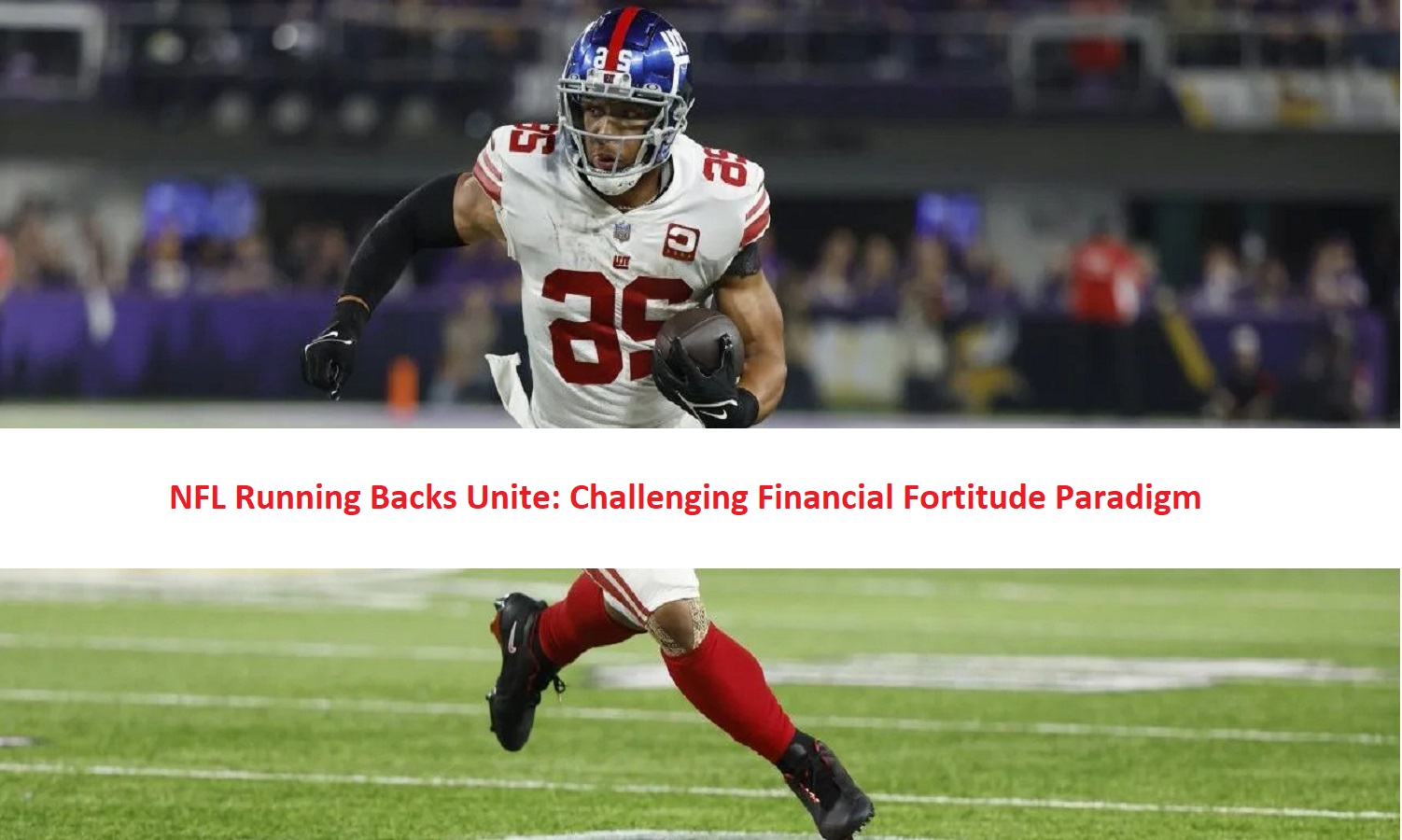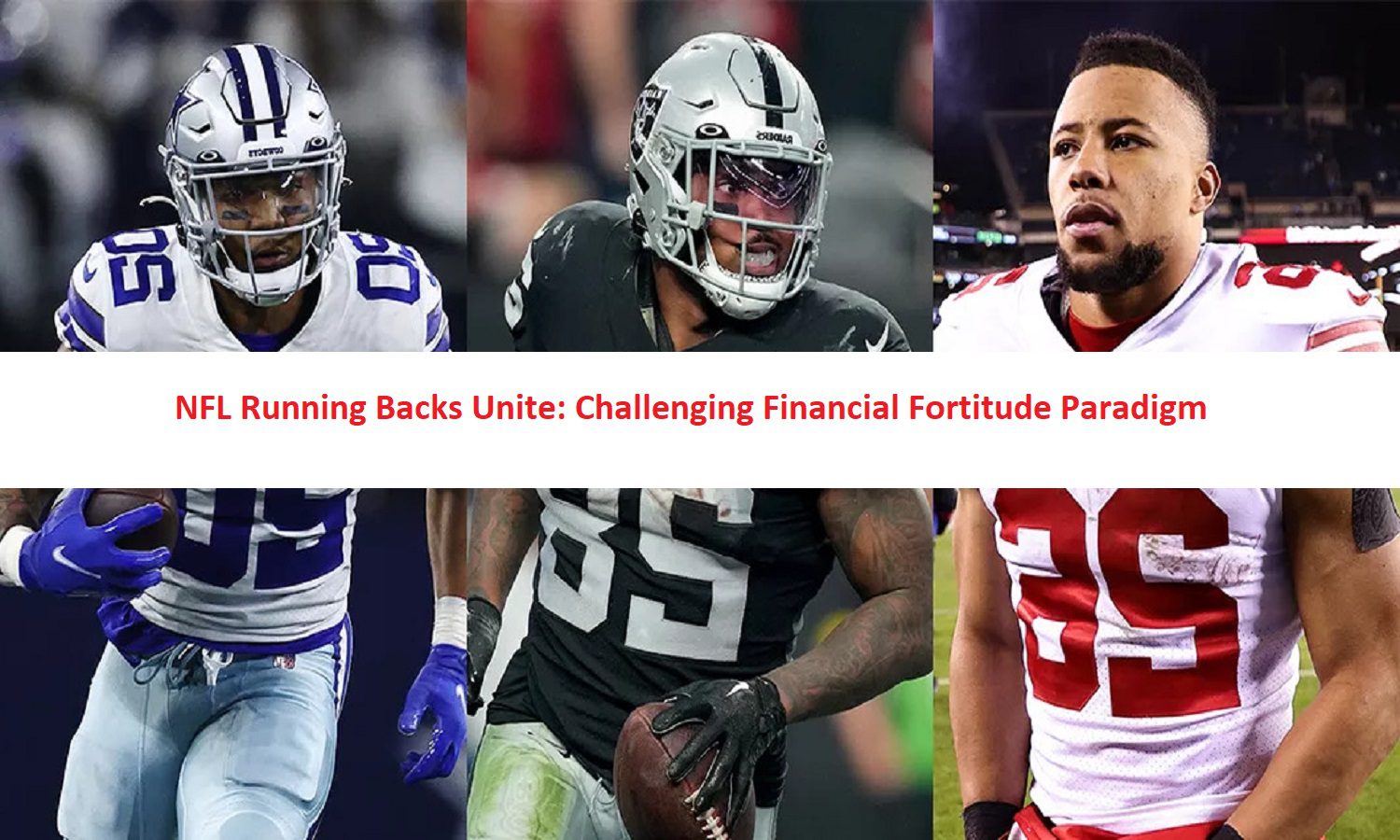NFL Running Backs Unite: a cohort of gridiron gladiators, recently forged an alliance through a virtual congregation, replete with stars like Austin Ekeler of the esteemed Los Angeles Chargers, luminary Christian McCaffrey, the formidable Derrick Henry, Saquon Barkley, a force to be reckoned with, and the indefatigable Nick Chubb, amongst other esteemed athletes. The purpose of this convocation was to grapple with the disconcerting pattern that has emerged, a lamentable trend that threatens to diminish the financial security of NFL players within their ranks.
As the sun dipped below the horizon and the stars adorned the celestial tapestry, the Zoom realm bore witness to an intellectual jousting of epic proportions. Conversations swirled around the prevailing concerns, particularly the unwavering stance taken by certain NFL franchises, reluctant to bestow the well-deserved bounties upon established running backs. These illustrious athletes, bearing a yoke of history and achievement, stand confined within the realm of dialogue, constrained by the intricacies of their current predicament.
Amidst the press conferences that punctuated the training camps, Nick Chubb of the Cleveland Browns, a paragon of the rushing arts, artfully articulated, “Right now, it’s just talking. There’s really nothing we can do. We’re kind of handcuffed with the situation. But the biggest thing is that were at a position where our production hurts us the most. If we go out there and run for 2,000 yards with an abundance of carries, the subsequent year they’re going to posit that you’re probably worn down. That’s the most salient takeaway I gleaned from our discourse.”


Emanating from the grounds of gridiron battles, echoes of uncertainty reverberate across the league. The past months bore witness to skirmishes between the finest backs in the game and their respective teams, grappling to find an equitable equilibrium for their virtuosity. However, the harmony of contractual agreements remained elusive. Even the hallowed names of Saquon Barkley, a two-time Pro Bowler hailing from the Giants, and the reigning NFL rushing champion, the illustrious Josh Jacobs of the Raiders, bore the brunt of this intractable stalemate, as the shackles of franchise tags hindered their quest for long-term security. Meanwhile, Dalvin Cook and Ezekiel Elliott, both esteemed free agents, stand unmoored amidst the commencement of training camps.
Nick Chubb’s baritone voice resonated with candor, lamenting the plight of running backs as a collective, “We’re definitely in a tough situation, running backs as a whole.” The prevailing conjecture among NFL teams, akin to the swirling winds of autumn, is that running backs possess a limited shelf life, prone to rapid decay, with readily available replacements just a heartbeat away. This assumption, akin to an ancient myth, casts a pall over the prospects of these athletes, relegating them to expendable entities in the grand tapestry of the game.
However, Nick Chubb’s sagacity shatters the myth with the sharpness of a blade. He dissects the notion that wear and tear affects every running back uniformly, using the formidable example of Derrick Henry, a relentless force who continues to tread upon the field despite accumulating yards in copious measure. The ever-tenacious Nick Chubb contends that each athlete is unique, defying the homogenizing labels imposed upon them. Drawing comparisons to injured receivers who evade similar designations, he contends that such assumptions are unjustifiably narrowed, mere semantic shackles that constrict the potential of running backs.
Thus, as the stars continue to shimmer above the hallowed grounds, the congregation of NFL running backs unite in their pursuit of breaking free from the chains that bind them. Through collective resilience, wisdom, and valor, they aspire to reclaim their rightful place in the pantheon of the league’s financial elite, paving the way for a future where running backs can bask in the glory of their contributions without fear of diminishment.
Also Read: Victoria Beckham Spice Girls: Serenade Victoria Beckham Impromptu Spice Girls Delights Fans
Our Reader’s Queries
Can running backs unionize?
The NFLPA is the labor union for all professional football players in the NFL. There isn’t a separate union just for NFL running backs.
Who is the best RB in the NFL right now?
Christian McCaffrey, the star player of the San Francisco 49ers, showed his exceptional ability to catch passes and make explosive plays when he joined the team in the middle of the 2022 season. With a full offseason to familiarize himself with the offense, he is expected to deliver even more impressive performance in 2023, taking his game to new heights.
What’s happening with NFL running backs?
The role is losing ground in the running game. In 2022, running backs contributed to 79 percent of the league’s rushing yards, a decrease from 83 percent in 2000. Quarterbacks are increasing their running plays and gradually reducing the dominance of running backs. Despite this, running backs still managed to secure 37 percent of the league’s yards in 2022.
What is the NFL running back dispute?
The NFL has lodged a complaint against the NFL Players Association, claiming that union executives, including President JC Tretter, have encouraged running backs to “think about pretending or overplaying injuries” in order to gain more bargaining power in contract talks.

